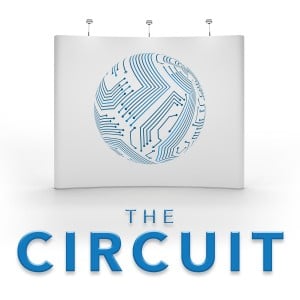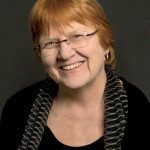 Ed. note: Please welcome Above the Law’s newest legal technology columnist, Monica Bay, who today tackles Legaltech New York — love it or dread it, it’s a must-attend annual ritual.
Ed. note: Please welcome Above the Law’s newest legal technology columnist, Monica Bay, who today tackles Legaltech New York — love it or dread it, it’s a must-attend annual ritual.
Lawyers, legal technology professionals, and vendors look forward to — or dread — ALM’s Legaltech New York, the annual three-day intensive boot camp that inevitably falls on the worst weather days of the year.
Even seasoned veterans are intimidated by the sheer magnitude of the event, which consumes almost every inch of the New York Hilton Midtown and spills over to other venues. There are exhibit halls crammed with products to be demo’d and 17 tracks of seminars addressing e-discovery, startups, cypersecurity, Big Data, information governance, government investigations, and just about every topic in legal tech. And don’t forget the ubiquitous breakfasts, lunches, early and late dinners, parties — and after-parties. Forget about sleep.

Paying for Law School in 2025: A Straight-Talk Playbook
Juno has consistently secured the best private loan deals for students at the Top MBA programs since 2018—now they’re bringing that same offer to law students, at no cost. Students can check their personalized offers at juno.us/atl This article is for general information only and is not personal financial advice.
When deciding which sessions to attend, sure bets are the daily keynote and plenary sessions. Over the last few years, conference providers have come to realize that one of the best ways to put “butts in seats” is to have a panel full of judges. Patrick Oot, LTNY’s educational advisory board chair (and partner at Shook, Hardy & Bacon) also uses that formula for his corporate-focused E-Discovery Institute. Georgetown Law’s annual Advanced E-Discovery Institute follows that playbook too.
So it’s no surprise that Legaltech New York 2016 kicks off on February 2 with a keynote packed full of judges: “How Is Technology Used in Today’s Courtrooms and Cases,” moderated by Erin Harrison, Editor-in-Chief of Legaltech News. Panelists include U.S. Magistrate Judges James Francis, Andrew Peck (Southern District of New York), Elizabeth Laporte (Northern District of California) and Pamela Sargent (Western District of Virginia), as well as Chief Magistrate Judge Emeritus Lorenzo Garcia (District of New Mexico).
“Judicial participation has symbiotic benefits to both practitioners and jurists,” observed Oot. “Lawyers must learn and understand how judges balance different interpretations of the law—but more importantly judges should seek out real-life training rather than rely on adversarial filings. The rapid change and growth in technology also requires a deeper perception of the burdens and intricacies that tech imposes on litigants,” Oot continued. And with the recent amendments to the Federal Rules of Civil Procedure now in play, “judges need guidance just like the rest of us.”
Three of the participating judges previewed their views for Above The Law.

Skills That Set Firms Apart
Legal expertise alone isn’t enough. Today’s most successful firms invest in developing the skills that drive collaboration, leadership, and business growth. Our on-demand, customizable training modules deliver practical, high-impact learning for attorneys and staff—when and where they need it.
Said Laporte: “The overarching tech issues for lawyers in 2016 are ensuring that technology is used competently, effectively and fairly to achieve compliance with the letter and spirit of the new federal rules amendments as elucidated by the commentary on the changes—especially the parties’ duties to cooperate under Rule 1 to ensure the just, speedy and inexpensive determination of every case, and to achieve proportionate discovery under Rule 26 that facilitates a just determination on the merits. At the same time, judges will need to encourage and facilitate this constructive use of evolving technology.”
Peck was succinct: “It is more than time for lawyers to stop talking about, or worrying about, technology-assisted review (TAR) — and to start using it. Tech will not replace lawyers, but lawyers must be better informed about and make use of technology.”
Francis elaborated on the theme:
For lawyers:
- Learn to love TAR. “Now that lawyers can no longer use the excuse that judges might reject TAR (if they ever could), they need to look hard at the economic and reliability advantages of computer-assisted discovery.”
- Implement the proportionality principles embraced by the new amendments to the Federal Rules of Civil Procedure. “Lawyers need to find the right balance — neither ignoring proportionality, as many have; nor objecting to proportionality in cases where the cost of litigating the issue will outweigh the potential savings.
For judges:
- “Implement the proportionality principles embraced by the Rules amendments. (Sound familiar?) Find a way to compare incomparables, for example, balancing the value of the case against the importance of the issues in the litigation.”
- “Develop technical competence in order to be able to engage in active management of cases involving electronically stored information.”
HIGHLIGHTS
ATL asked ALM’s Henry Dicker, vice president, global events, what was new (or innovative) for LTNY 2016.
“Legaltech is an example that the legal industry is diverse and covers everything from the ever-growing concerns of disruption, e-discovery, innovation, cyber, judicial and legislative, etc.,” said Dicker.”We love to open Legaltech with subject matters that speaks to the entire legal community, whether it covers national security concerns as with speakers from homeland or the FBI, general counsel or in this case the incredible human capital that sits on the bench,” said Dicker.
Cases in point: The February 3 keynote, “Cybersecurity and Data Espionare: Spy Stories for Lawyers,” will feature Eric O’Neil, who has served in the FBI as a counter-terrorism and counter-intelligence operative. The February 4 keynote, “Private Network Servers, Deleted Emails & Texts and Other Controversies in the News” includes Fordham Law School’s Daniel Capra as moderator and panelists Jason R. Baron (Drinker Biddle & Reath), attorney Edward MacMahon Jr., and U.S. District Judge Shira Scheindlin. (The keynotes start at 9 a.m. and are open to all.)
Academia is becoming a key player at Legaltech, noted Dicker. The 2016 show will include a new collaboration with universities with strong cyber curriculum, he said. And there will be an inaugural collegiate hackathon between eight universities, in real time on the exhibit floor.
Dicker also cited the expansion of the CodeX Pavilion, showcasing the work of CodeX: The Stanford Center for Legal Informatics, led by Roland Vogl. CodeX will also have a track of startup programs on February 4. “This has been such a great partnership for both parties—raising awareness of the incredible work of CodeX and the products that they incubate to bring to market,” said Dicker.
LTNY also includes collaborations with the International Legal Technology Association, ARMA, The New York State Bar Association, and Women in Ediscovery.
And keep your eyes out for two late-night “after-parties” at the Hilton. “Rock More, Review Less”—aka the 2nd Annual Legaltech Concert—will start up the music at 8:30 p.m. Tuesday (February 2). John Tredennick, CEO of Catalyst Repository Systems, will be among the legal technology musicans (he’ll be on the drums), and you can expect many covers of Grateful Dead hits. The event, sponsored by several vendors and ALM, will benefit Equal Justice Works, and will be held at the West Grand Ballroom at the Hilton. That same venue will also offer music on February 3, via Franklin Data, hosting a party on February 3, honoring military veterans.
MUST ATTEND
Yes, you’ll end up exhausted and probably wet from lousy weather, but Legaltech New York is always a “must attend” venue for the legal technology community. “Nowhere else can a practitioner meet such a motley group from all facets of the profession,” joked Oot.
Amy Juers, CEO of Edge Legal Marketing, sums up the key tips: “Do your homework before the show. Identify the sessions you want to attend and also the exhibitors you want to visit. Literally map out your day(s). Use the Legaltech staff as guides. Bring business cards and also get plenty of rest beforehand so that you have enough energy to make it through three solid days of learning, networking, and having fun in the Big Apple!”
And, of course, don’t forget the universal advice of 35 years of LTNY: Wear comfortable shoes!
 Monica Bay is a Fellow at CodeX: The Stanford Center for Legal Informatics and a columnist for Above The Law. She also writes for Bloomberg BNA Big Law Business and serves as a special consultant to The Cowen Group. She is a member of the California Bar and is based in New York City (and can be frequently found at Yankee Stadium). Email: [email protected]. Twitter: @MonicaBay.
Monica Bay is a Fellow at CodeX: The Stanford Center for Legal Informatics and a columnist for Above The Law. She also writes for Bloomberg BNA Big Law Business and serves as a special consultant to The Cowen Group. She is a member of the California Bar and is based in New York City (and can be frequently found at Yankee Stadium). Email: [email protected]. Twitter: @MonicaBay.